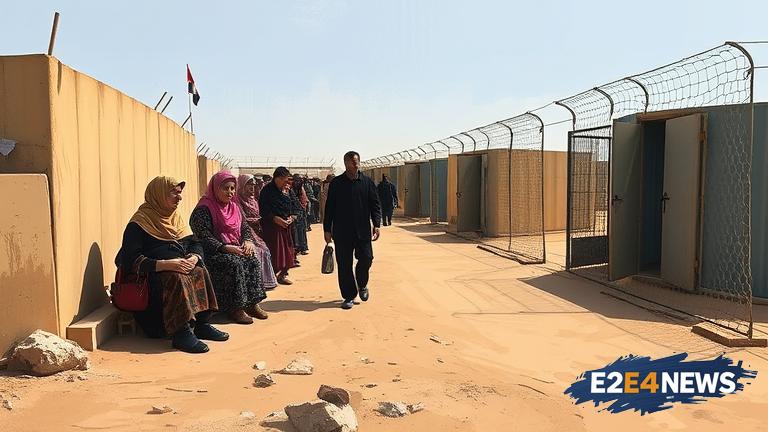The Iraqi government has announced plans to repatriate hundreds of women and children who have been detained for their alleged connections to the Islamic State (ISIS). This move has raised concerns among human rights groups, who fear for the safety and well-being of these individuals. Many of the women and children in question are foreigners, having traveled to Iraq from countries such as Russia, Turkey, and European nations. They were often brought to the country by their husbands or family members who were fighting for ISIS. The women claim they were coerced or forced into joining the militant group, while others say they were simply trying to escape war-torn areas. Despite their claims, many have been detained in Iraqi prisons, where conditions are often harsh and unsanitary. The Iraqi government has stated that it is working to repatriate these individuals, but the process has been slow and fraught with challenges. One of the main concerns is the lack of diplomatic relations between Iraq and some of the countries of origin, making it difficult to coordinate repatriation efforts. Additionally, many of the women and children are without proper documentation, such as passports or identification papers, which further complicates the process. Human rights groups have expressed concerns over the treatment of these individuals, citing reports of abuse, mistreatment, and poor living conditions in Iraqi prisons. They have also raised questions about the guilt or innocence of these women and children, many of whom may have been victims of circumstance rather than willing participants in ISIS activities. The repatriation process is also complicated by the fact that many of these individuals may face prosecution or persecution in their home countries. Some may be seen as a security threat, while others may be viewed with suspicion or hostility by their communities. The Iraqi government has assured that it is working to ensure the safe and dignified repatriation of these individuals, but the road ahead is likely to be long and challenging. As the situation continues to unfold, it remains to be seen how the repatriation efforts will be carried out and what the ultimate fate of these women and children will be. The international community is watching closely, with many calling for a humane and compassionate approach to the situation. It is a complex and sensitive issue, requiring careful consideration and coordination between governments, human rights groups, and other stakeholders. The well-being and safety of these women and children must be the top priority, and it is imperative that their rights and dignity are respected throughout the repatriation process. The situation highlights the need for greater cooperation and understanding between nations, as well as a commitment to upholding human rights and the rule of law. As the world continues to grapple with the aftermath of the ISIS conflict, it is essential that we prioritize the protection and well-being of all individuals, regardless of their background or circumstances. The repatriation of these women and children is a critical step towards healing and rebuilding, and it is our collective responsibility to ensure that it is carried out in a way that is just, humane, and respectful of human rights. The situation is a stark reminder of the devastating consequences of conflict and the importance of promoting peace, understanding, and reconciliation. It is only through working together and upholding our shared values of compassion, justice, and human dignity that we can hope to create a brighter future for all.
